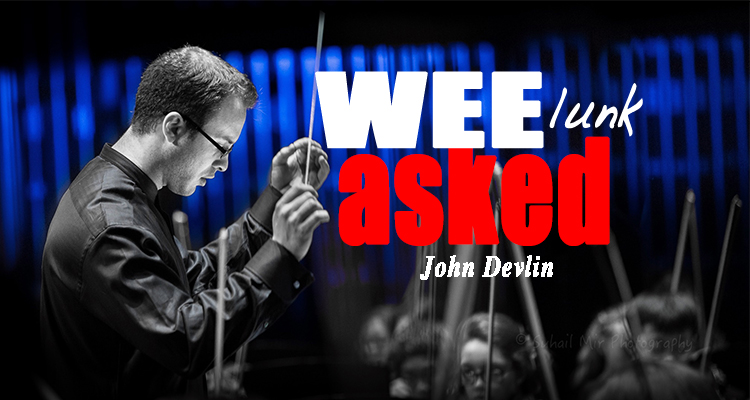Editor’s note: We changed up our WEEasked series a few times over the past several months, asking specific questions to the candidates vying for the position of Wheeling Symphony music director. There are five conductors in the running, and each one has had a shot at answering the same questions, with the answers posting a few days before their concert.
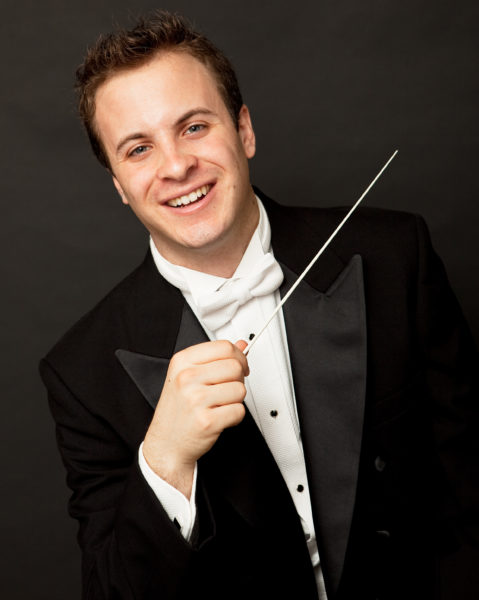
A sports fan, a foodie, a cyclist and a lover of music of many kinds, John Devlin will join the Wheeling Symphony Orchestra on Friday, March 15, as the fifth conductor vying for the position of music director of the WSO.
He can debate “for hours” about “Game of Thrones” and “Breaking Bad,” and he loves ska/punk rock. And he’s also into jazz, Regina Spektor and Chance the Rapper.
Devlin has been hooked on conducting since the baton was passed to him as an undergrad at Emory University, where he was pursuing degrees in music and Latin.
He is a “leader in designing concerts that frame orchestral music in innovative ways,” according to his bio. He is founding music director of the Gourmet Symphony, which pairs a dining experience with an evening of classical music. It — and other projects — have been hailed by the Washington Post as “refreshingly unfamiliar” events that deliver “a new audience for classical music.”
Devlin is the music director of the Hawaii Youth Symphony and the artistic director of the Pacific Music Institute.
With the WSO, he will lead the March 15 concert featuring bass, Soloman Howard, and In April, he will lead a pops program, collaborating with Broadway star Sierra Boggess, who played Ariel in The Little Mermaid and Christine in The Phantom of the Opera.
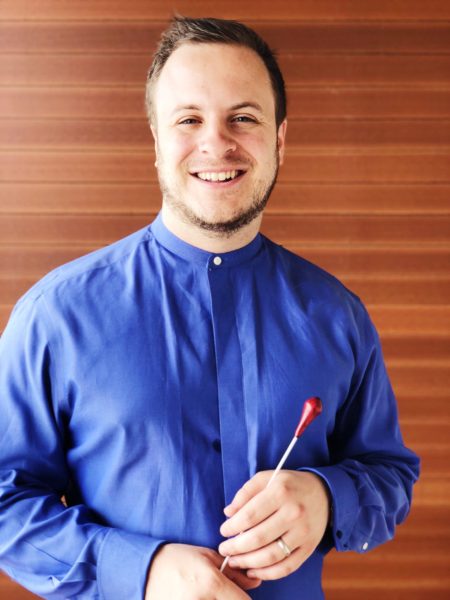 Get to know John Devlin. Here is what he answered when WEEasked:
Get to know John Devlin. Here is what he answered when WEEasked:
1. Tell us about yourself — some highlights of your professional career, training and education.
I am very excited to have a chance to get to know the Wheeling community and to work with the wonderful musicians of the WSO. The artistic quality of the orchestra and its musicians is well-known, and I am honored to be considered as a potential next leader for this special ensemble.
For the past 10 years, I have lived in the Washington, D.C., area, and during that time I completed my master’s and doctoral degrees at the University of Maryland School of Music. Upon graduation, I began my professional career as cover conductor for the National Symphony Orchestra at the Kennedy Center and as founding artistic director and conductor of Gourmet Symphony. For three seasons, I was also the assistant conductor of the Princeton Symphony Orchestra in New Jersey. With the NSO and PSO, I worked as an apprentice to some of the world’s greatest conductors and was able to direct a number of programs with the field’s best players and soloists. These experiences helped me to grow as a musician and a leader, and I would love to use what I’ve learned in leading the WSO.
2. Tell us something personal you’d like your audiences to know about you.
I received my undergraduate degrees in music and Latin from Emory University, where I played clarinet in the orchestra and wind ensemble. It was there that I was given my first conducting opportunities — and I was hooked! I believe that because of my liberal arts background, I am able to relate well to different types of people who love classical music for different reasons.
As far as hobbies and interests go, I have many! I am a die-hard sports fan; I love all things about restaurants and cooking; I can debate with you for hours about popular TV shows like Game of Thrones and Breaking Bad; and I am an avid cyclist. The question here was to tell you a bit about myself and to share my hobbies and interests — and part of what I love about having a wide variety of interests is that I can have great conversations with people of all types of backgrounds. Through this common ground, I can usually find something to share about symphonic music that might excite.
One of the best parts of my life is sharing my love of music with my wife, Camille. She is an oboist and an arts administrator. Music brought us together, and I love that it is something we share.
3. How do you see yourself incorporating the changing landscape of orchestral music with the Wheeling Symphony Orchestra?
I am excited that the next music director will be asked to conduct both the Masterworks and Pops programming. Few orchestras ask the music director to do so — and I am passionate about both worlds.
A major emphasis for me is to help shape what is going to become the canon of true American music with orchestra. Starting about 100 years ago, American composers began to have a real impact on orchestras at home and abroad. I believe that today’s American conductors, soloists and orchestras have a duty to help shape the set of composers and works that will continue to be played by future generations, just as Austrian and German orchestras have done for centuries to ensure the longevity of their own great national composers. For me, both our symphonic music and music from Broadway and film are essential parts of this American canon. That is why my programs contain a large variety of music by Americans composed in all different styles, many with vocal parts. We will explore Broadway through composers like Frederick Loewe, Richard Rodgers, Leonard Bernstein and Andrew Lloyd Webber. Hollywood will be represented by greats such as John Williams and Alan Menken, and we will also hear African-American spirituals. Together, these styles form a great American musical tradition, and I am looking forward to exploring it with the Wheeling audience.
In addition, I am inspired by the diversity of concert types that the WSO presents each season, and I would be excited to continue this type of forward-thinking programming. Conducting concerts in The Capitol Theatre will be a joy, but I am equally invigorated by the idea of being on the ice at WesBanco, supporting the youth orchestra at Oglebay Park, and exploring with the WSO team and the community where and how we can perform new concerts that our audiences would be enthusiastic about attending — and, sometimes, provide unexpected experiences!
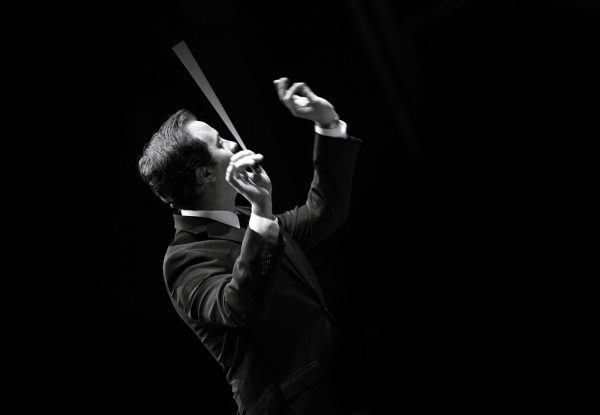 4. How do you see the community playing a part in the role of the Wheeling Symphony’s music director?
4. How do you see the community playing a part in the role of the Wheeling Symphony’s music director?
Each time I join a new community, I do a lot of listening to try to discern exactly what that community hopes for from its orchestra. After many years as a member of the musical community in Washington, D.C., I responded to two major areas of interest that I found in that community: local music and food.
With regard to the former, I was named orchestral conductor and became a key organizer of a group called Go-Go Symphony, which combined a full symphony with a go-go band, street dancers, projectionists and vocalists. (Go-go, with its funky, percussive sound, originated in D.C. in the ’70s.) The reception for this group was outstanding, and its most enthusiastic followers were those who typically would never attend a symphony orchestra concert.
I was also on the founding team of Gourmet Symphony, an organization created in response to the burgeoning culinary scene in D.C. that has become such a point of pride for the city. Gourmet Symphony was all about innovation. Our team considered carefully each aspect of the traditional symphonic concert format and then imagined a variety of ways through which we could modernize that experience — including the incorporation of food and drink. This concept is something I spoke about at great length with the WSO search committee and the orchestra’s talented staff, and I am heartened by their support of these types of ideas.
I would bring this ethos of research and exploration to Wheeling if I were chosen as the next music director. I believe in innovation, but only as far as it responds to the real needs of a community. Thus, I would take very seriously the responsibility of understanding and responding to how Wheeling and its surrounding community would like to be served by its orchestra. I am ready to work very hard and break some traditions, if by doing so the WSO’s programming might better represent the needs of its audience.
5. Who is your favorite composer? Why?
My favorite composer is Dimitri Shostakovich, a Russian composer from the 20th century. I find his music compelling in large part because he wrote under grave threats and pressures from the Soviet regime and yet managed to be a beacon of artistic and spiritual hope for his country’s people during a time of great oppression. He risked his life to compose music that would communicate their struggle.
I remember well the first time I heard the music of Shostakovich. It was while I was a clarinet student at the Boston University Tanglewood Institute. Kurt Masur, one of the world’s foremost conductors at the time, was conducting the conservatory-level orchestra in Shostakovich’s Fifth Symphony. I had a front-row seat in the balcony and was leaning over the edge of the railing as the first movement began. My jaw dropped at the first sounds of the piece, and I remained transfixed until the very last note. The combination of raw emotion and power was a new experience for me as a musician — and one that I try to bring to every type of work that I now conduct.
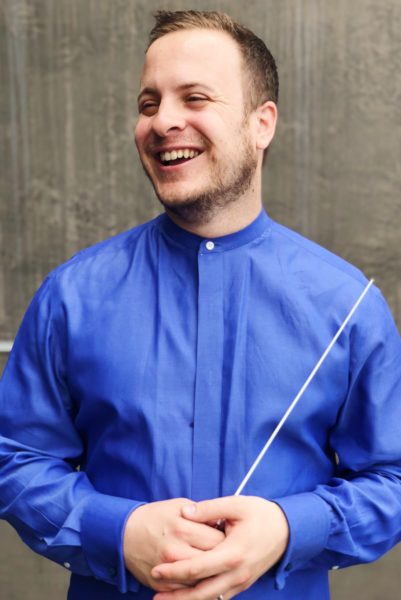 6. What’s your favorite non-classical music style?
6. What’s your favorite non-classical music style?
My favorite non-classical style is ska/punk rock. It was very popular during the ’90s, when I was forming my first strong musical opinions, and it related in so many ways to the classical music that I was beginning to love as well. Ska bands always contain a number of brass and saxophone players who create harmonies and counter-lines around the typical combination of drums, bass, guitar and vocals. My favorite of those bands also had more than one lead singer, allowing constant two- or three-part harmony to be a beautiful part of the vocals. Bands like Reel Big Fish, Catch 22 and Less Than Jake were at the top of my list, and I continue to return to these on my Spotify journeys.
7. What’s on your current playlist?
Over the last year, I’ve gotten much more into jazz. I grew up listening to Ella Fitzgerald, Louis Armstrong, Tony Bennett and Frank Sinatra. Now, I’m loving exploring a wider roster of the amazing artists of that period. I think it’s no mistake that, like classical and the ska music I’ve already mentioned, those performers used orchestra instruments (I especially love big band) and incorporated them into their particular style of music-making. Miles Davis, Count Basie, Dizzy Gillespie, Ray Charles and Oscar Peterson are all artists whom I’m enjoying getting to know much better.
I am also exploring some new artists who have a more subtle sound but really special voices, particularly Regina Spektor and Chance the Rapper. I’m drawn in by the incredible sonic worlds and adventurous harmonies created by heavy rock bands like System of a Down and Metallica.
8. What else would you like to share with Weelunk readers?
I feel very honored to have been invited to be part of this search, and I am grateful for the opportunity to get to know the community and to share my artistic ideas with everyone in Wheeling. I am a very honest artist, and I’ve tried to share with the committee exactly how I would approach this tremendously important job. There is a rich history at the WSO and a track record of real musical excellence that I would be excited to continue. I would also hope to contribute innovative ideas about programming and especially about designing concerts that would expand the proud WSO tradition and invite an even wider audience to appreciate the work of this outstanding orchestra.
For more information about the Wheeling Symphony Orchestra concert, read the recent story about Friday’s concert.


